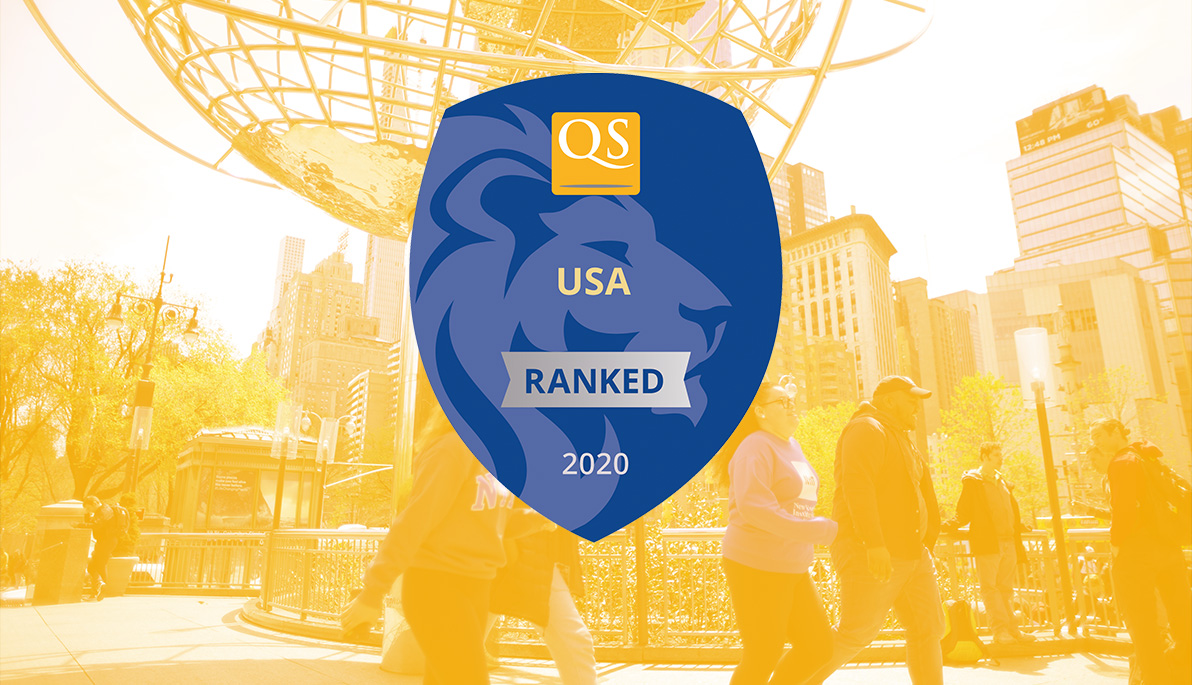News
New York Tech Among Top U.S. Universities for Excellence, Research Performance, and Career Outcomes
June 4, 2020
New York Institute of Technology is among the top American institutions of higher education ranked by QS (Quacquarelli Symonds) in its inaugural list of top U.S. universities. The global higher education research company and publisher of the QS World University Rankings selected just 300 American universities for its first annual QS World University Rankings: USA, which was created to assess how well universities respond to social, intellectual, and economic challenges—increasingly important factors for prospective students.
New York Tech’s overall spot in the QS World University Rankings: USA placed it in the midrange of the “best-in-class” pack, at a tie for No. 151 nationally and at No. 14 in New York State. Among its similarly ranked peers, the university scored highly in the diversity and internationalization category.
“To be ranked that high regionally and among the top 300 of the nearly 2,500 four-year institutions in the United States puts us in the top 15% of all American universities according to these significant criteria,” said New York Tech President Hank Foley, Ph.D. “This recognition underscores our ongoing commitment to diversity, employability, and internationalization; factors that are and will continue to be of importance to our students and our institution.”
Universities were ranked according their research performance and career outcomes as well as a range of indicators assessing each institution’s social impact and attempts to foster equitability, including gender pay gap, faculty gender diversity, ratio of undergraduate students receiving Pell Grants, and retention rates. The methodology used by QS also evaluated universities based on their efforts in support of the 17 United Nations Sustainable Development goals.
The QS World University Rankings: USA focuses on diversity and internationalization utilizing data that includes the percentage of undergraduates receiving Pell Grants, gender diversity, and the percentage of international students as well as alumni outcomes, graduation rates of Pell Grant recipients, and Fulbright students studying abroad. It is also unique in that particular attention is paid to employability outcomes through a combination of QS proprietary datasets, including alumni outcomes and the QS Employer Reputation survey.
QS CEO Nunzio Quacquarelli said, “QS has been surveying prospective university students since the start of the global pandemic, with more than 33,000 students sharing the impact of the emergency on their plans. Though COVID-19's effects on higher education will resonate for years to come, our ongoing research reveals that students are not deterred from pursuing their education and career goals. It is our hope that this inaugural ranking will provide prospective students with an insightful comparative tool and point of view, as they prepare for the next steps in their educational journey.”
In seeking to provide both domestic and international students with a highly relevant set of criteria for comparison, QS evaluates universities according to four key metric groups: research, learning experience, diversity and internationalization, and employability.
Ben Sowter, Research Director at QS, said, “For 30 years, QS has served the global higher education student community with the independent insights they need to make informed decisions. Our unique Employer Reputation indicator, a dataset based on the sentiments of over 44,000 hiring managers worldwide, allows potential applicants to assess U.S. universities based on their ability to enhance their future careers, according to the most robust dataset available.”



_Thumb.jpg)

